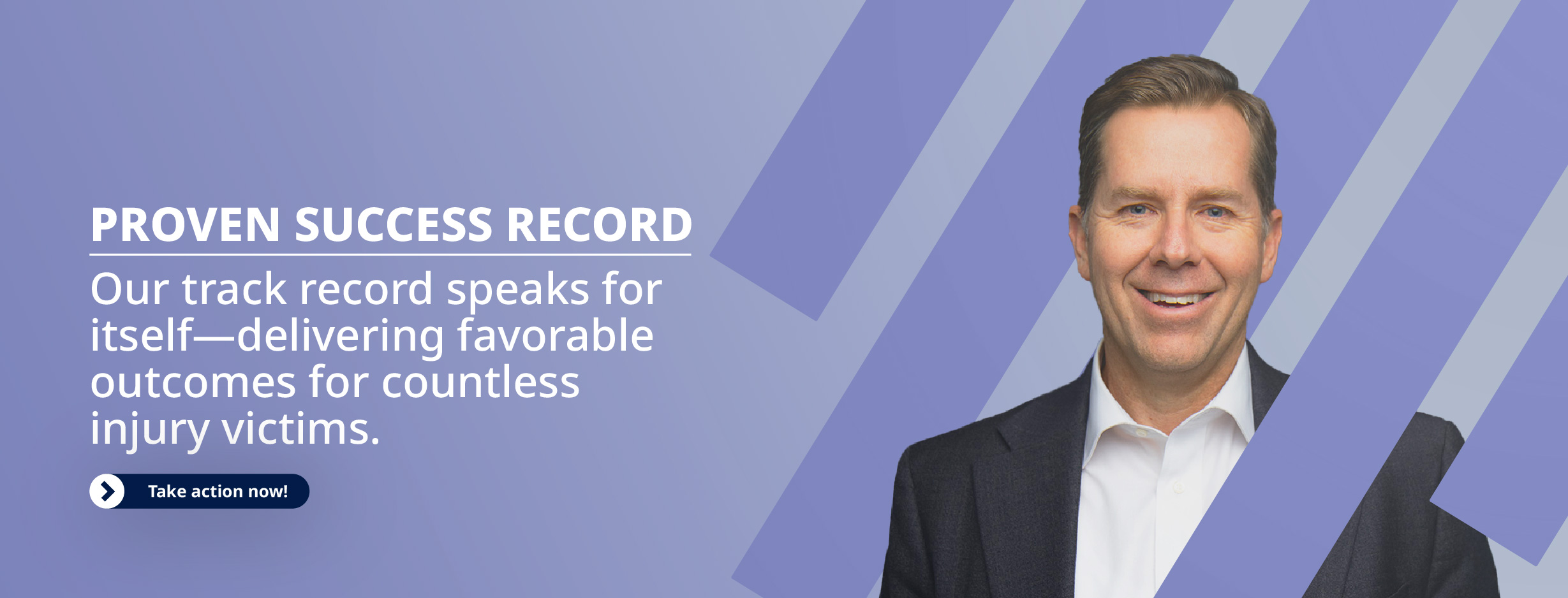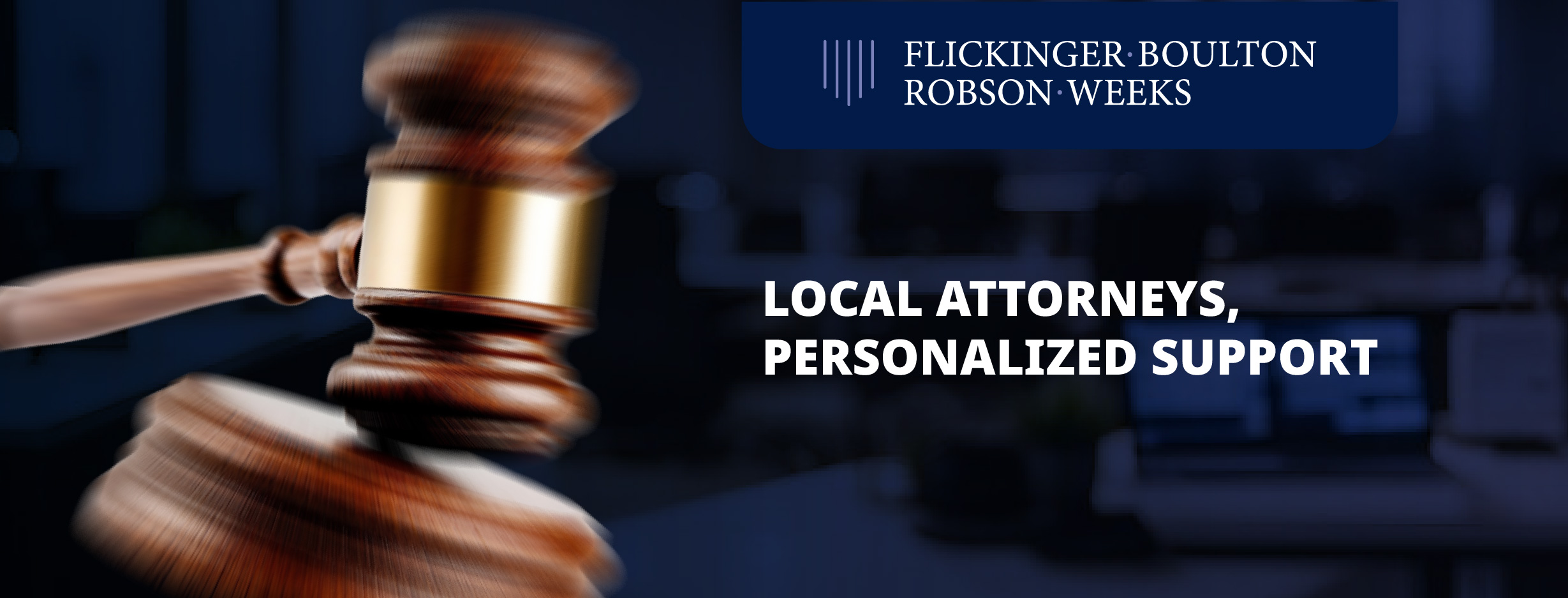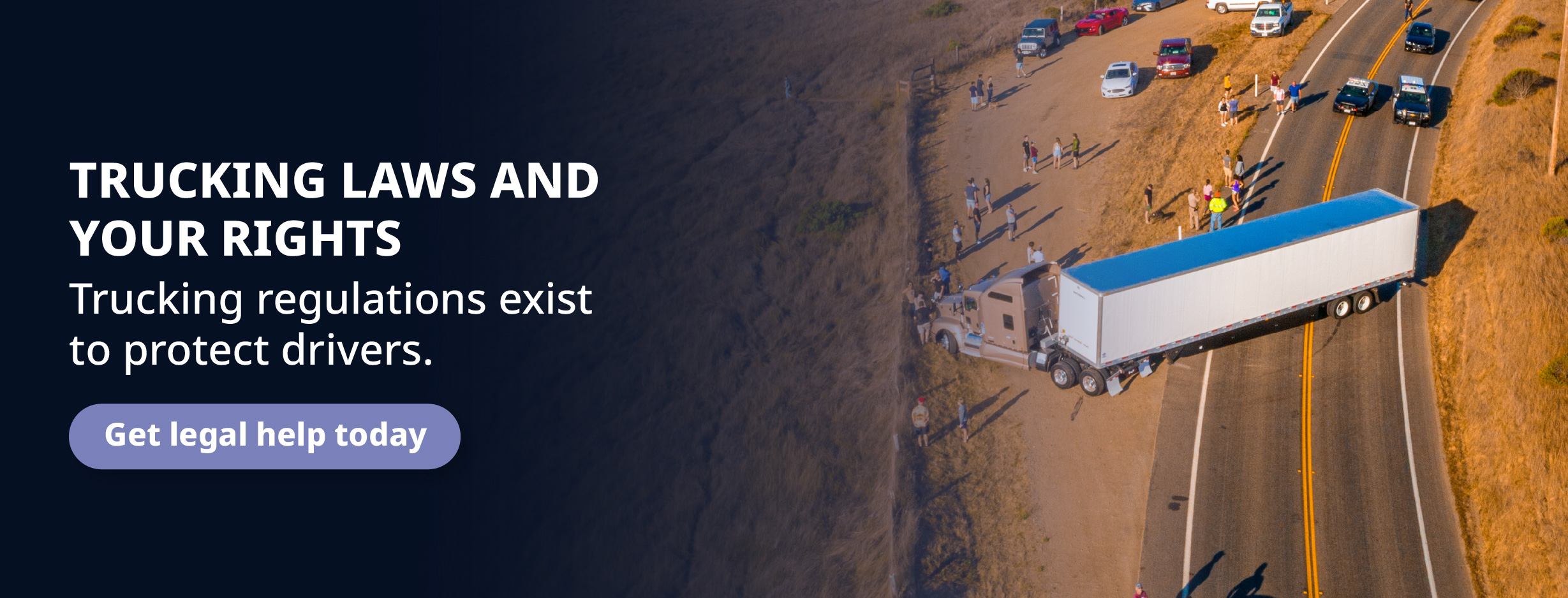Navigating the complexities of federal and state trucking regulations is crucial when handling truck accident claims in Lehi. These laws are designed to ensure the safety of all road users by setting strict guidelines for truck drivers, trucking companies, and vehicle maintenance.
The experienced legal team at Flickinger Boulton Robson Weeks understands the intricate web of regulations that govern the trucking industry and how they impact accident claims. Whether a violation of federal hours of service rules led to driver fatigue or a trucking company failed to maintain its fleet properly, these legal factors play a significant role in determining liability.
If you or a loved one has been involved in a truck accident, knowing how these regulations apply to your case is essential. Our firm is dedicated to helping accident victims understand their rights and pursue the compensation they deserve by holding negligent parties accountable.
The Federal Motor Carrier Safety Regulations (FMCSR) are a set of rules established by the Federal Motor Carrier Safety Administration (FMCSA) to ensure the safe operation of commercial motor vehicles (CMVs) in the United States. These regulations are designed to reduce accidents, injuries, and fatalities involving large trucks and buses by setting strict safety standards for drivers, vehicles, and trucking companies. Understanding these regulations is critical for determining liability in truck accident cases, as violations often contribute to serious crashes.
One of the primary focuses of the FMCSR is ensuring that commercial drivers are properly trained and fit for duty. The regulations require that all truck drivers obtain a Commercial Driver’s License and pass physical examinations to ensure they are medically qualified to operate heavy vehicles.
Additionally, truck drivers must comply with Hours of Service regulations, which limit the number of hours they can drive within a given period to prevent fatigue-related accidents.
Key HOS rules include:
Trucking companies and owner-operators must perform regular maintenance and inspections to ensure their vehicles operate safely. The FMCSR mandates that trucks undergo daily pre-trip and post-trip inspections, with any safety concerns addressed before the vehicle is put on the road.
Necessary maintenance requirements include:
Failure to maintain a truck properly can lead to mechanical failures such as brake malfunctions, tire blowouts, and steering issues, significantly increasing the risk of accidents.

Improperly loaded or unsecured cargo can shift during transit, causing rollovers, jackknifes, or debris spills that endanger other motorists. The FMCSR establishes cargo securement rules that require loads to be distributed appropriately and secured using approved methods such as tie-downs, tarps, and blocking/bracing techniques.
Special regulations apply to hazardous materials, requiring strict labeling, containment, and handling procedures to prevent leaks or explosions.
To enhance road safety, the FMCSR mandates that commercial drivers undergo drug and alcohol testing under the following circumstances:
Drivers who test positive for controlled substances or exceed the legal blood alcohol concentration limit of 0.04% are prohibited from operating a commercial vehicle until they complete a return-to-duty process.
When a truck accident occurs, investigating whether FMCSR violations contributed to the crash is critical to determining liability. If a truck driver exceeded HOS limits and fell asleep at the wheel, a trucking company failed to perform necessary maintenance, or a carrier neglected to conduct required drug tests, these violations can serve as strong evidence of negligence.
At Flickinger Boulton Robson Weeks, our legal team thoroughly examines FMCSR compliance in every truck accident case we handle. By identifying violations and holding negligent parties accountable, we help injured victims pursue the compensation they deserve.
In addition to federal regulations established by the Federal Motor Carrier Safety Administration, Utah has its own trucking laws designed to enhance road safety and ensure that commercial motor vehicles operate within state guidelines.
These laws address vehicle weight limits, licensing requirements, roadway restrictions, and additional safety regulations that apply to trucking operations within Utah, including Lehi. Having a member of our team of experienced truck accident attorneys can help you understand these laws, which is crucial when determining liability in a truck accident case.

Utah enforces strict weight and size restrictions for commercial trucks to prevent excessive road wear and minimize accident risks caused by overloaded vehicles. The Utah Department of Transportation follows the federal weight limits but also allows for some variations through special permits.
Trucking companies that exceed these limits must obtain special overweight or oversize permits from UDOT. Failure to comply with weight restrictions can result in fines and increased liability in the event of an accident caused by an overloaded truck.
Utah requires all commercial truck drivers to obtain a Utah CDL if they operate vehicles that:
To obtain a Utah CDL, drivers must pass a written knowledge test, a skills test, and a medical examination. Additionally, Utah enforces mandatory drug and alcohol testing for all commercial drivers, including random screenings and post-accident testing.
If a driver is found to be impaired while operating a commercial vehicle, they may face severe penalties, including CDL suspension and potential criminal charges.
While Utah generally follows the 80 mph speed limit on rural interstates, commercial trucks are subject to stricter regulations. Many highways and urban roads impose lower speed limits for large trucks to reduce accident risks.
Additionally, certain routes throughout Utah, including steep mountainous areas and residential zones, have truck restrictions that limit the types of commercial vehicles allowed. Trucks transporting hazardous materials must follow designated routes to ensure public safety.

When a truck accident occurs in Lehi or elsewhere in Utah, determining whether state trucking regulations were violated is essential in establishing liability. If a truck was overweight, a driver lacked a proper CDL, or a company failed to conduct required maintenance, these factors could be strong evidence of negligence.
At Flickinger Boulton Robson Weeks, we investigate all potential violations of Utah’s trucking laws to help victims recover the compensation they deserve.
Trucking regulations at both the federal and state levels play a crucial role in truck accident cases in Lehi. These laws are designed to ensure safety on the roads, and when they are violated, they can significantly impact liability, insurance claims, and compensation for accident victims.
Understanding how regulations such as Federal Motor Carrier Safety Administration rules and Utah-specific trucking laws apply in truck accident cases can make a substantial difference in the outcome of a claim.
When a truck accident occurs, one of the first steps in determining liability is investigating whether the driver, trucking company or another involved party violated any applicable regulations. Regulatory violations can serve as strong evidence of negligence. Some of the most common violations that impact liability include:
When regulatory violations are identified in a truck accident case, they provide clear evidence of negligence, making it easier for victims to hold the responsible parties accountable.
Insurance companies play a key role in truck accident claims, and compliance with trucking regulations can affect how claims are handled. In Utah, trucking companies are required to carry higher insurance coverage than standard vehicles, given the potential for catastrophic damage in truck accidents.
However, insurance companies often attempt to minimize payouts by disputing liability or arguing that the victim shares responsibility for the crash.
Regulatory violations can strengthen a victim’s claim against insurance companies. For example, if an accident occurred because a trucking company failed to maintain its vehicles according to FMCSA guidelines, insurance adjusters may have less room to argue against liability.
Additionally, federal and state trucking regulations require extensive record-keeping, including driver logs, inspection reports, and electronic logging device data, which can serve as crucial evidence in insurance negotiations.

Truck accidents often result in severe injuries and extensive damages, making fair compensation essential for victims. When a regulatory violation is proven, it can increase the chances of securing full compensation for damages such as:
Because truck accident cases in Lehi often involve large trucking corporations and complex regulatory laws, having experienced legal representation is crucial. At Flickinger Boulton Robson Weeks, we conduct thorough investigations into trucking accidents, reviewing company records, driver logs, and maintenance reports to identify any regulatory violations. By leveraging these violations as evidence, we work to ensure that victims receive the maximum compensation available under Utah law.
Understanding trucking regulations is key to holding negligent parties accountable. If you or a loved one have been injured in a truck accident, our firm is here to help you navigate the complexities of your case and fight for the justice you deserve.
At Flickinger Boulton Robson Weeks, we understand that trucking accidents are far more complex than standard car accidents. One key reason for this complexity is the extensive web of federal and state trucking regulations that govern the industry.
These regulations are designed to promote safety, but when violated, they can serve as crucial evidence in establishing liability. Our firm has extensive experience navigating these regulations to build strong cases for truck accident victims in Lehi, ensuring they receive the compensation they deserve.
One of the first steps in building a strong truck accident case is investigating whether any federal or state trucking laws were violated. Our Lehi legal team at Flickinger Boulton Robson Weeks reviews critical documents such as:
By analyzing these records, we can uncover violations that establish negligence and strengthen our client’s claim.

Trucking companies and drivers must comply with both Federal Motor Carrier Safety Administration regulations and Utah state trucking laws. These regulations cover everything from vehicle maintenance to driver training and insurance requirements. Our firm uses these laws strategically to demonstrate fault.
For example, if a trucking company allowed a driver to exceed HOS limits, ignored maintenance requirements, or failed to ensure proper licensing, we use these violations to show that negligence contributed to the crash. In cases where multiple parties share responsibility, such as the truck driver, the trucking company, or a third-party cargo loader, we work to hold each party accountable under the applicable regulations.
To maximize compensation for our clients, we go beyond basic accident reports. We gather evidence that directly ties trucking regulation violations to the crash. This can include:
We strengthen our clients’ claims against trucking companies and insurers by meticulously compiling and presenting this evidence.
Trucking companies and their insurers aggressively defend against claims to minimize their financial liability. They may argue that the victim was partially responsible, downplay the severity of injuries, or attempt to settle for less than what’s fair. Because our firm is well-versed in trucking regulations, we counter these tactics with clear, irrefutable evidence of negligence.
When insurance companies see that a truck driver or their employer violated FMCSA or Utah trucking laws, they are more likely to negotiate a fair settlement rather than risk a costly court case. If necessary, we are fully prepared to take cases to trial to secure the best possible outcome for our clients.
Our firm is dedicated to securing full compensation for truck accident victims, including:
By thoroughly navigating trucking regulations, we build strong cases that ensure our clients receive the justice and compensation they deserve. If you’ve been injured in a truck accident in Lehi, Flickinger Boulton Robson Weeks is ready to fight for you.

If you or a loved one have been injured in a truck accident in Lehi, you don’t have to face the aftermath alone. At Flickinger Boulton Robson Weeks, we are committed to helping truck accident victims navigate the legal process, fight for their rights, and secure the compensation they need to rebuild their lives. Our deep understanding of trucking regulations and aggressive legal representation ensure that negligent drivers and trucking companies are held accountable.
Don’t wait to take action. Contact us today at (801) 500-4000 for a free consultation. Let our experienced Lehi truck accident lawyers advocate for you and help you move forward with confidence.
Bicycle Accidents
Motorcycle Accidents
Boating Accidents
Recreational Vehicle Accidents
Bus and Mass Transit Accidents
Pedestrian Accidents
Automobile Accidents
ATV or UTV Rollovers
Commercial Vehicle Accidents
Semi Truck and Trailer Accidents
UTAH INJURY LAWYERS
Flickinger • Boulton
• Robson • Weeks
PROVO OFFICE
3000 N University Ave
Suite 300
Provo, UT 84604
SOUTH JORDAN OFFICE
10393 S. Temple Dr.
Suite 103
South Jordan, Utah 84095
OFFICE HOURS
Monday- Friday: 8AM-5PM
Saturday-Sunday: Closed
*Disclaimer: the information provided by this website is for informational purposes only and should not be considered legal advice or a substitute for competent legal counsel.
**SMS consent and contact phone numbers will not be shared or sold to third parties or their affiliates for any purpose.
© 2025 All Rights Reserved.